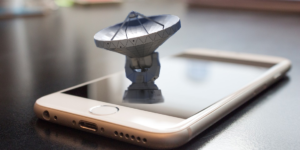There has to be a better way than frantically waving your phone around above your head, trying to send a text. Something better than running to the outdoors whenever a call comes in just to make sure it doesn’t get dropped to a cut in the signal. Technology was meant to simplify our lives, not to cause further stress and complications. That’s where the signal booster comes in.
What does a signal booster do?
It’s the solution to all your signal problems at home. It takes whatever mobile reception is available and repeats it, creating a stronger mobile signal within the chosen vicinity. It should be placed in the area with the strongest signal in the house so it’s easier for it to recreate a solid mobile signal. Have it properly installed by a professional to get maximum connectivity. There have been cases when boosters were placed in weaker areas of, i.e., a home so results weren’t as impressive until the right personnel corrected the problem.
How’s it different from a femtocell?
The femtocell also boosts signal but instead of utilizing the carrier’s reception, it converts a broadband connection into mobile signal. It’s one alternative that you could also consider if you already have a wifi connection. However, it requires a powerful connection because the femtocell eats up a lot of it to provide strong mobile reception. This could cause problems if you’d use your internet at the same time.
Why should I get a signal booster?
Communication has taken centerstage in today’s mobile era. Quality calls are necessary to conduct work-related discussions remotely, regardless of the different locations between caller and receiver. Clear calls also enhance personal lives through audible and smooth-flowing interaction. Through strong mobile signals, we can also use the internet via data connections, gaining access to other communication channels. As people rely on more than one channel, we gain a wider reach through the internet, whether it’s for business or personal social exchanges. Sending and receiving files such as documents, marketing materials, sales reports and slideshow presentations can be done real time with good mobile reception.
Are there different kinds of signal boosters?
You should take into account several criteria when purchasing a signal booster.
The type of location where it’d be used.
Take your lifestyle into account. Would you be working mostly from a single location or are you expecting to travel frequently? There are those made for immobile locations such as houses, offices, buildings, etc. If you travel frequently, like on a boat or RV, there’s a specific kind of booster designed for mobility.
The type of network.
There are those that connect to 2G and 3G networks and another that can connect to 4G and LTE networks. If you’re looking for greater speed, 4G and LTE are highly recommended. Before signing up for a 2-year contract, you might want to research on whether your carrier offers the best signal for your vicinity.
According to use.
If you’re planning to use it for individual use or a handful of people, get one made for consumers. They’re easier to install and use so you don’t have to hire an expert to get it set-up. Industrial boosters were built for commercial areas where the need and use of signal is much greater than what a consumer booster can handle. The industrial-type were invented for large-scale use and requires experts for strategic placement and installation.
Your network carrier.
Some boosters were made only for certain mobile service providers so using one that doesn’t match yours wouldn’t help improve mobile signal. If you expect people to come to your house often, scout for boosters built for more than one carrier.








